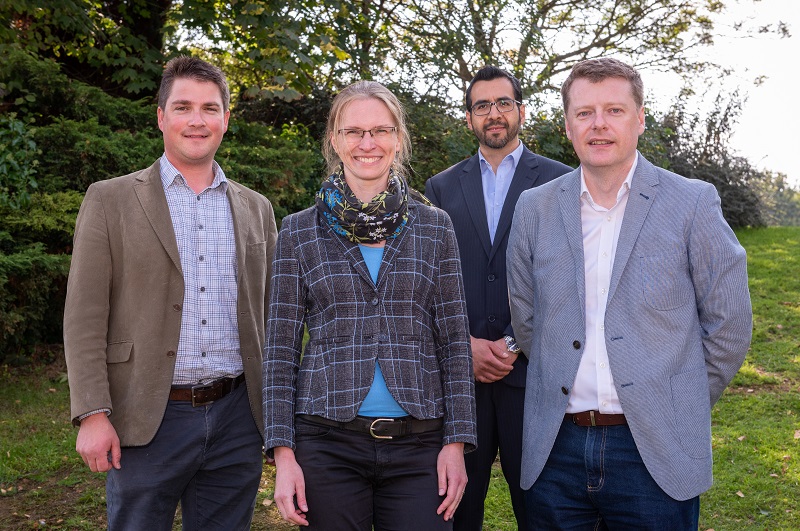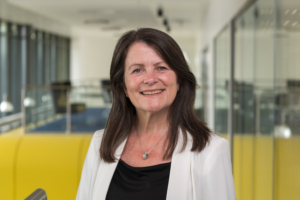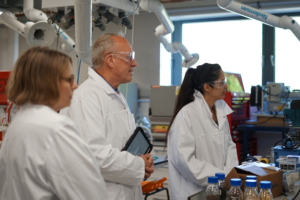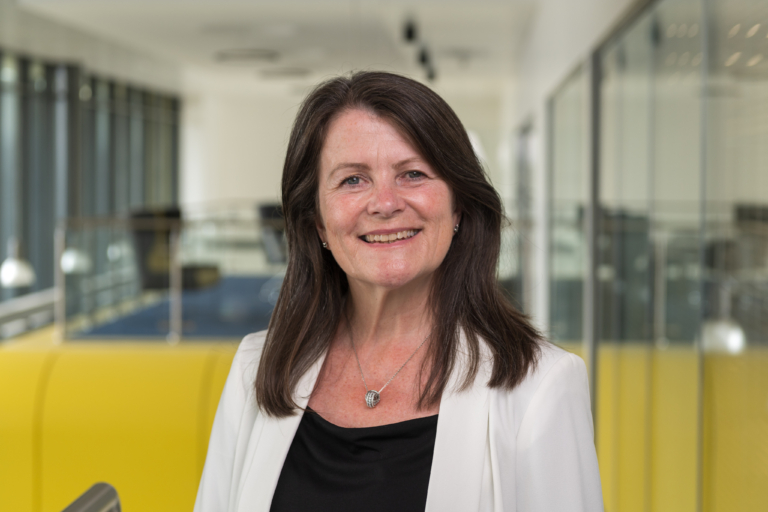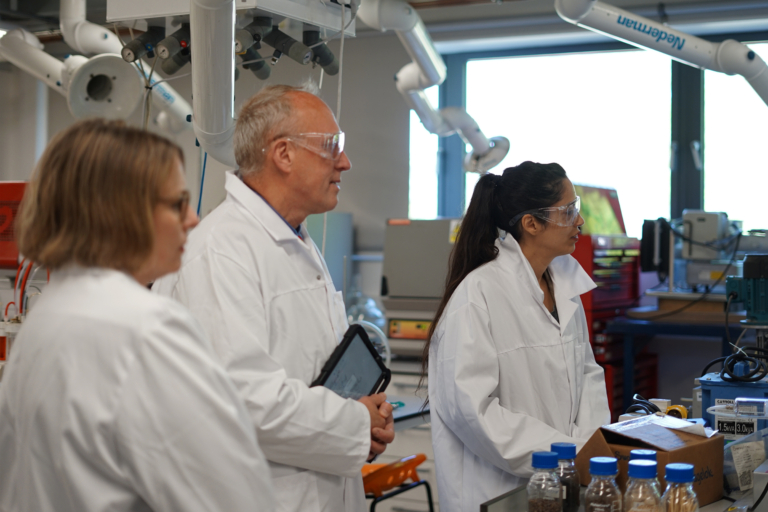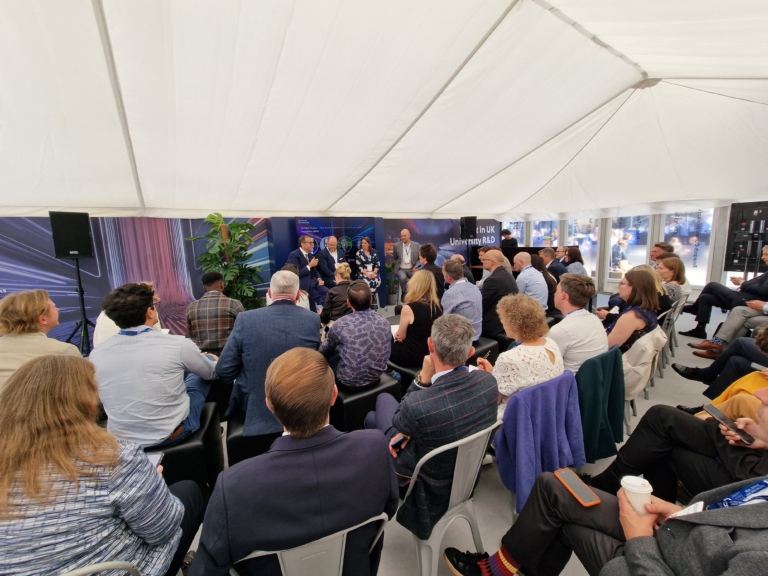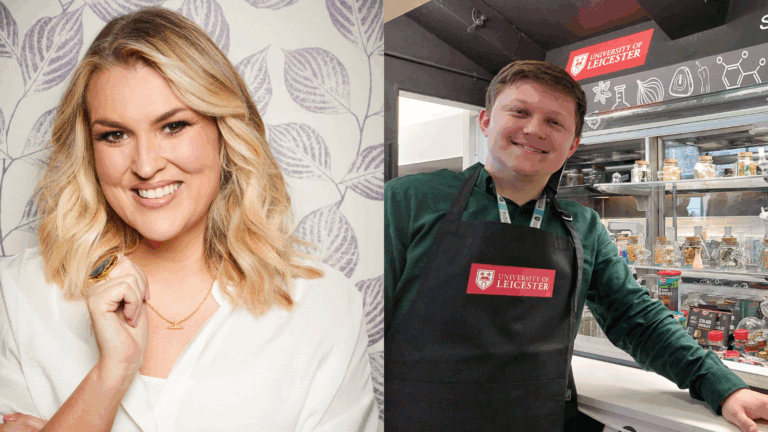Researchers in the Midlands are benefitting from vastly increased computational research capabilities, cutting data sampling time from weeks to days, thanks to a £3.2m supercomputer based at the University of Warwick.
The high performance computer (HPC), named Sulis, has been operating for almost a year offering Tier 2 ensemble computing facilities to researchers in the Midlands and beyond.
The state-of-the-art research facility, funded by EPSRC and HPC Midlands+ has unlocked greater research potential within chemistry, engineering, mathematics and medicine, leading to new research on EV battery materials and drug discovery.
Sulis’ technical capabilities and capacity were showcased at an event hosted by Midlands Innovation and the University of Warwick.
Dr Annalena Genreith-Schriever, Yusuf Hamied Department of Chemistry, University of Cambridge, Marco Iglesias, Associate Professor in Scientific Computation, University of Nottingham and Professor Nicholas Hine, Department of Physics, University of Warwick presented case studies to the HPC network, emphasising the opportunities to advance research projects.
Professor David Quigley said the facility offered new and exciting opportunities for research in even more disciplines.
“Sulis has unlocked greater research potential for chemists, mathematicians and physicists, plus we’re really excited about the scope for new research projects in Astronomy, Biosciences and AI,” he said.
“The high-throughput computer has vastly increased HPC capacity in the region; hundreds of users have accessed Sulis since 2021 with around a thousand more expected to use it in its lifetime.
“The high throughput focus of Sulis has motivated new practices in how we train researchers to work within a HPC environment and increased opportunities to strengthen our expertise and knowledge through by collaborating across the Midlands universities.
“This is just the beginning; we look forward to growing the HPC community further and helping to enable ground-breaking research and ideas.”
Dr Helen Turner, Director of Midlands Innovation said: “From the High Performance Computers, to Cryo-Electron Microscopes and specialist energy facilities, at Midlands Innovation we are committed to sharing the region’s cutting-edge research facilities and building new research collaborations and networks.
“Already Sulis has been accessed by researchers at all levels, including academics, PhDs and postdocs. Researchers also benefit from a new regional network of Research Software Engineer, many of whom support their users to maximise the potential of Sulis.”
“Thanks to Sulis, our whole research community is benefiting from learning and development opportunities surrounding ensemble computing. As a result, we continue to build a more interconnected research community in the Midlands helping us to attract the best talent, cultivating ideas to drive innovation.”
Early Career Researchers from Midlands Innovation partners who have used Sulis presented their findings at a poster presentation and networking session. The event was sponsored by OCF, Dell and Nvidia.
Researchers who want to find out more about Sulis visit www.sulis.ac.uk
